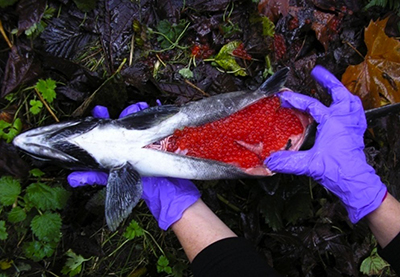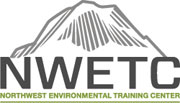Blog
Stormwater Pollution Effects on Salmon Spawning

Last week, the Seattle Times ran an article highlighting the problem that stormwater runoff poses to salmon, as they return to their home streams to spawn. The story just happened to coincide with our classes in Salmonid Ecology and Salmonid Spawning Habitat Restoration at the Issaquah Fish Hatchery, and our course in Stormwater management/Erosion and Sediment control in Oregon. This particular piece is focused on Northwest salmon populations, so it was especially relevant that we were hosting courses in both of those topics-but the Northwest is not the only place where fish populations are endangered due to stormwater runoff. Anywhere that runoff is not treated effectively, pollution can enter waterways, and pose a threat to animal and plant life, and make its way into food or water consumed by humans.
At NWETC, we strive to present relevant, up-to-date courses that address issues from an unbiased, scientific/factual viewpoint, and allow attendees to gain the most actionable knowledge in the shortest possible time. We commend the instructors of the Salmonids courses (Dr. Joseph Merz, and Dr. Rocko Brown) and of the Erosion and Sediment Control course (Nathan Hardebeck) for being at the forefront of their fields, and sharing their knowledge with our attendees. Thanks to them, more people are aware of the risks, challenges, and best management practices to protect salmon, streams, and ourselves from pollution to to runoff.
Headlines
The City of Portland, Oregon invites applications for the position of Site Development Inspector I
CITY OF PORTLAND invites applications for the position of:
Site Development Inspector I
The City of Portland, Oregon invites applications for the position of Site Development Inspector I
CITY OF PORTLAND invites applications for the position of:
Site Development Inspector I
*Follow NWETC on twitter, and "like" us on Facebook by clicking the icons:
© 2026 NWETC. All rights reserved







